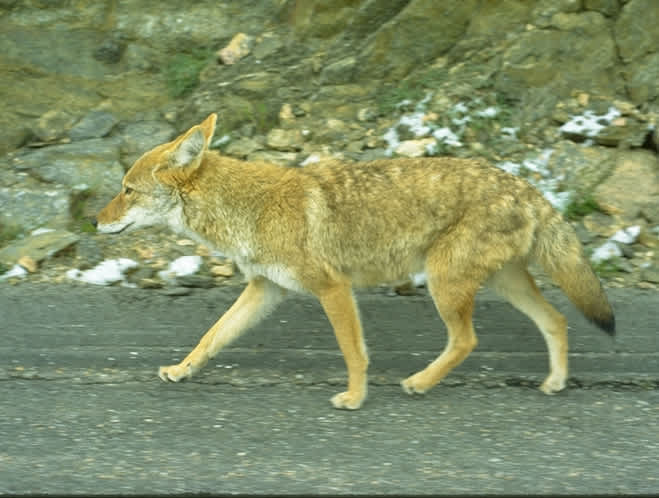Ongoing Study in Colorado Town Asks Residents to Haze Coyotes
OutdoorHub Reporters 01.17.14

It is an old adage that wildlife is best left alone, but one Colorado town is actively encouraging its residents to harass coyotes. As a part of the Metro Area Coyote Behavior Study taking place in Broomfield, researchers are asking the community to haze coyotes whenever they can. While it may seem mean-spirited, biologists hope the experiment will shed some light on human-coyote interactions.
“We know that hazing can be effective, but not enough people do it, so its effectiveness seems limited,” Stewart Breck of the US Department of Agriculture’s National Wildlife Research Center told The Broomfield Enterprise.
Colorado is one of the many states reporting an increase in coyote-related incidents. The state holds a year-round coyote hunting season with no bag limits, but more and more of the animals are straying into urban centers. Although coyotes very rarely attack humans, the small predators can be dangerous to pets and livestock.
Hazing is a form of non-lethal deterrent often carried out by local officials, but researchers are interested in the effects of “community-based” hazing. This method involves putting up signs to direct residents to harass coyotes when it is safe to do so. Coyotes generally have a fear of humans and will leave when encountered. More inquisitive animals can be dealt with by shouting, throwing small objects, banging together pans or waving arms. Homeowners could also spray the uninvited pests with a garden hose.
The study is a cooperative effort between several Colorado counties, the National Wildlife Research Center, and the state’s Parks and Wildlife division. Researchers intend on setting up cameras to record changes in coyote behavior as a result of the hazing. The overarching goal of the project is to see if group-based hazing will reduce conflict or even force the coyotes to move beyond the boundaries of the city.
Coyotes are usually not dangerous to humans but one Colorado man was attacked by a small pack last year. While on his way to work, Andrew Dickehage said he was beset by three coyotes that jumped at and bit him. He suffered only minor injuries, but officials warn people not to feed these animals, as it may cause them to lose their fear of humans.
Update 1-20-2014: Amended article for inaccurate spelling of Broomfield.

